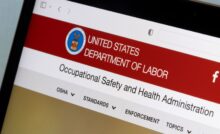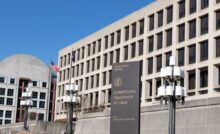Reopening Challenges for Atlanta Nonprofits


The impact of COVID-19 protection measures including the stay at home orders, forced business closures, and general uncertainty about prevention, left many businesses and nonprofits in a compromised position. Organizations were required to make difficult decisions about payroll and other expenses because income generating events and fundraisers were canceled. As Georgia progresses through the reopening process and cases of COVID-19 appear to be resurging, many are wondering how to balance safety measures against financial realities. Although each nonprofit has different financial and operational challenges to address, there is a bevy of foundational guidelines to help direct short-term reopening impacting employees, volunteers, donors, and program participants. To help clients, prospects, and others, Wilson Lewis has provided a summary of key issues below.
Health & Safety
The primary goal of any nonprofit or business reopening its doors is to ensure the safety of its employees, donors, and others. The state has provided important guidance to direct organizations as listed below.
- Prohibiting gatherings of more than 50 people (in effect until June 30, 2020)
- Encouraging work-from-home when possible, and/or implementing staggered shifts
- Holding meetings virtually when possible
- Increasing sanitation and hygiene practices on-site, including more frequent cleaning of high-touch surfaces
- Screening employees for temperatures and COVID-19 symptoms
- Have measures in place so that on-site staff or volunteers can maintain social distancing
- Encouraging staff or volunteers to take lunch breaks outside
- Discouraging staff or volunteers from using each other’s supplies or desks
- Prohibiting shaking hands or unnecessary personal contact
Organizations are also required to screen volunteers for COVID-19 and prohibit participation if exposed to those suspected to have COVID-19 in the past 14 days. More details are available in Governor Kemp’s full Executive Order. Part of what these changes mean right now is an increased expense for PPE, technology for remote work, and an additional focus on risk management and reduction.
Engagement & Communication
Stakeholder engagement will be critical in the weeks and months ahead. Think of all the groups impacted by the organization’s reopening: staff, volunteers, association members and/or community beneficiaries, and donors. Regardless of whether the stakeholder is internal or external, the best thing that organizations can do is communicate. Keep people informed across a variety of channels and give them opportunities to ask questions and engage in conversations.
Tips for navigating common scenarios include:
- Daily and transparent communication with staff.
- Communicate who can enter the office and what restrictions, if any, there are; for example, meetings with the public are delayed until a certain date, but Board members are permitted.
- Require any in-person visitor who is not a staff person to sign in
- Involve the Board with major policy decision-making.
- Keep the public informed of key timelines on reopening through press releases, website, social media, etc.
- When in-person events resume, encourage attendees to wear masks. If food will be served, no self-service should be permitted.
- Have contingency plans in live events through the end of 2020.
- Evaluate restricted use donations and inquire whether any of those funds can be redirected.
Especially in the nonprofit sector, staff and volunteers may face different circumstances in this in-between phase. Not everyone has continued access to a private space at home to work, or reliable internet access. Individuals relying on public transit may face difficulties as bus and train service is still limited, and parents of young children may still require a flexible schedule until childcare centers resume normal operations.
Ensuring Long-Term Resiliency
Atlanta’s recovery from COVID-19 is expected to take longer than the recovery from the 2008 recession – which took almost six years. In addition, philanthropy is expected to drop by 20-40 percent by the end of the year. It appears large gatherings will not be permitted anytime soon requiring organizations to modify fundraising strategies.
The good news is nonprofits that pivot earlier will fare better in the long-term. According to Georgia nonprofit experts, there are three possible paths forward: Reemerge, Reorganize, or Restructure.
- Reemerge is simply a continuation of services and programs, such as associations who will be permitted to hold in-person events sometime in the future, for example.
- Reorganize means pursuing a different approach to services and constituents, depending on how the people who rely on your organization have been affected by COVID-19 and if their needs have changed.
- Restructure involves changing the organization’s business model to accommodate a long-term revenue decline.
Deciding which category, the organization is in will help define which steps should happen next. Options might include:
- Pooling back-office resources and sharing expenses among organizations that serve similar constituents, for example, arts organizations
- Working together with others to pursue shared fundraising goals
- Creating new programs to address an immediate need, such as access to emergency services
- Merging with a similar organization
Proactive financial management and budget planning must happen first, or the Board will not have a clear picture of the present and future needs. The cash flow statement and cash flow projections are vital to long-term planning, now more than ever.
Contact Us
As the focus shifts from survival to recovery, nonprofits need to carefully plan for the next 12-18 months. It is important to not only accommodate expenses related to health safety changes but also income fluctuations due to new guidance impacting fundraising and more. If you have questions about the information outlined above or need assistance with cash flow planning, Wilson Lewis can help. For additional information call us at 770-476-1004 or click here to contact us. We look forward to speaking with you soon.
Recent Posts
Relief on Tap for Georgia Taxpayers
Earlier this month Georgia Governor Brian Kemp signed two important parcels of legislation into law.…
Preparing for an ERISA Audit
Preparing for an ERISA plan audit often starts with understanding what the audit looks for…
Auto Dealership Benchmarking
Atlanta car dealerships are constantly searching for ways to increase new and used car sales.…
Navigating New Auto Tariffs: What Dealerships Need to Know
On April 3, 2025, a new 25% tariff on imported vehicles went into effect, bringing…
Leukemia & Lymphoma Society Fundraiser
I want you to imagine hearing the three words, “You have cancer.” Sadly, this has…
Wilson Lewis Named a Regional Leader by Accounting Today
Atlanta accounting and advisory firm Wilson Lewis was honored this month as one the top…


